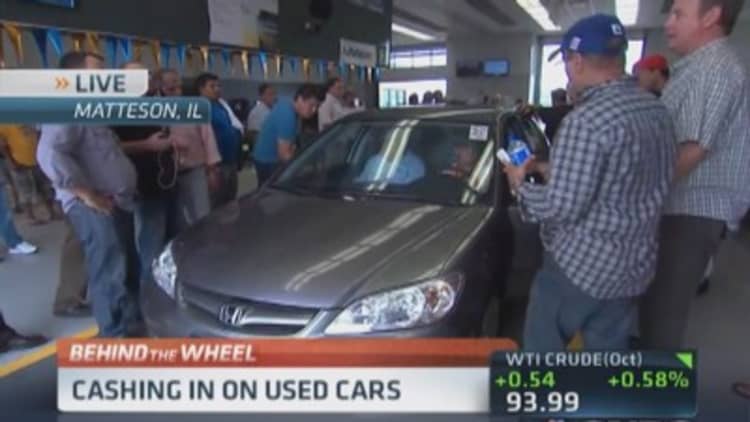The stereotype that women aren't willing to haggle with a car salesman is quickly going by the wayside.
According to a recent survey by Swapalease.com, women are becoming more accustomed to rolling up their sleeves to try to get the best deal on a new car, with one-third saying they were comfortable with the negotiation process. That's up from 21.6 percent just two years ago, and surpasses the 25 percent of men who said they were comfortable with the process.
"It really goes back to all of the information that is available online," said John Sternal, a spokesman for Swapalease. "Women like to do a lot of research, more so than men. With all of the information available online they can really prepare ahead of time."

Still, while men don't enjoy the process as much as women, they have higher expectations when it comes to wheeling and dealing. Men want to get a bigger discount on the manufacturer's suggested retail price of the vehicle, with about 81 percent saying they look to negotiate $2,000 or more off the price. Only 64 percent of women say they try to negotiate that much off the MSRP.
More from The Detroit Bureau:
Kia investing $1B in Mexican assembly plant
New car buyers increasingly dissatisfied with their vehicles
Over 100 file death claims linked to faulty GM ignition switch
Part of that discrepancy could stem from the fact that nearly 37 percent of women said they're not sure what a good or fair price should be. That compares with only 24 percent of men.
A higher percentage of women also said they try to first focus their negotiations on the monthly payment, though consumer negotiation experts largely advise to negotiate on the total price of the vehicle.
Read More10 most stolen vehicles—is your car on the list?
The Swapalease survey was conducted among 1,000 U.S. drivers from July 15 to August 10.
—By CNBC contributor Michael Strong

